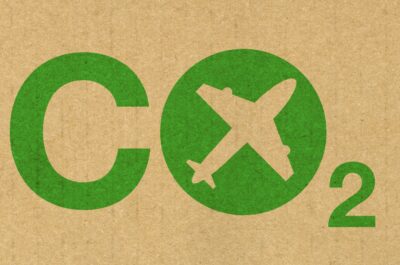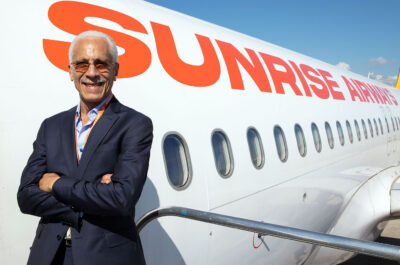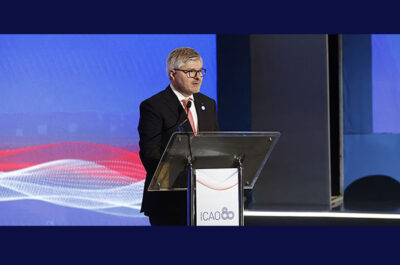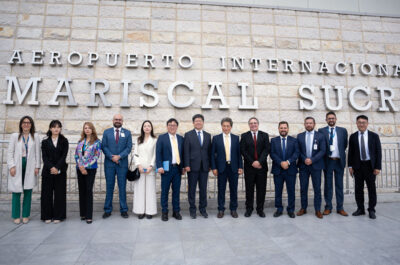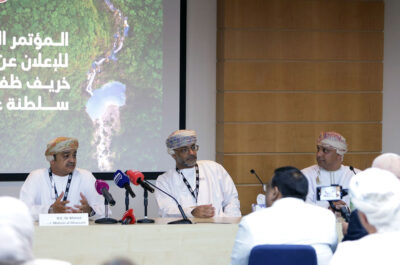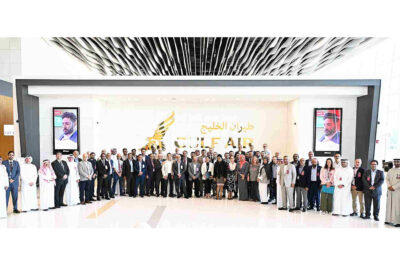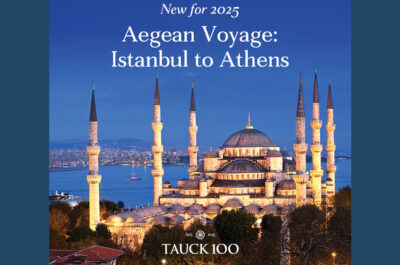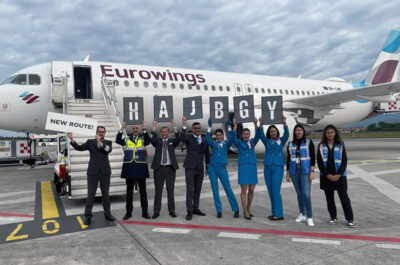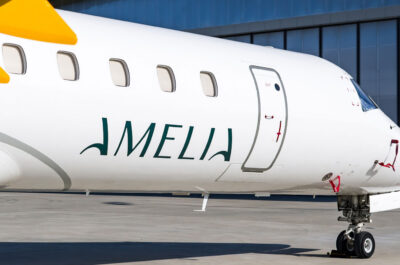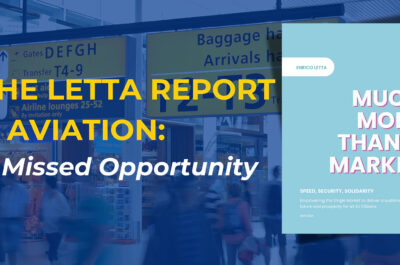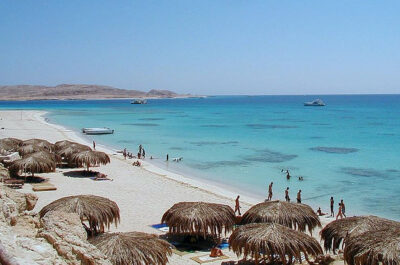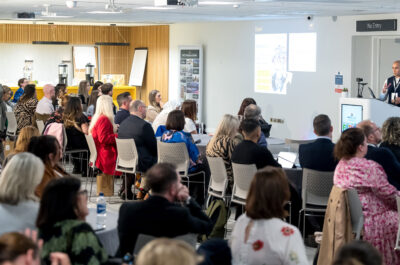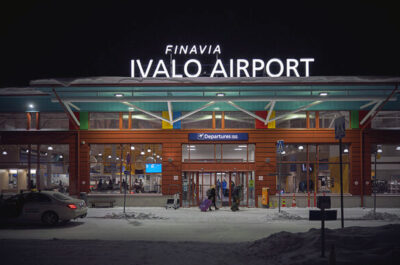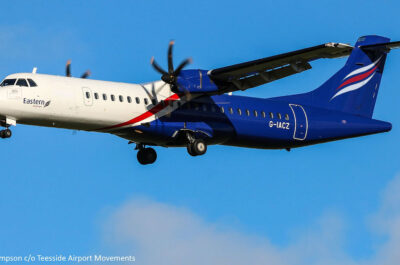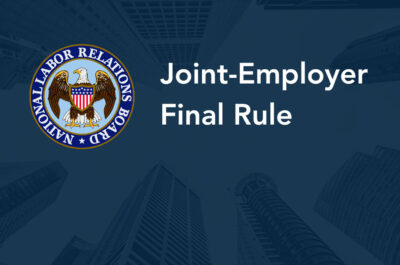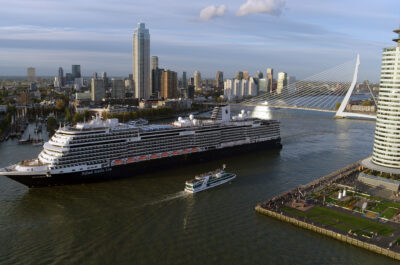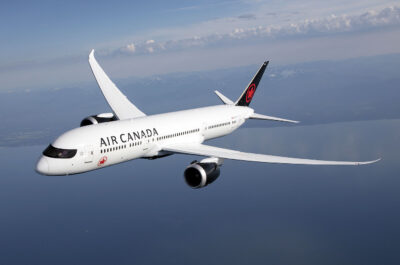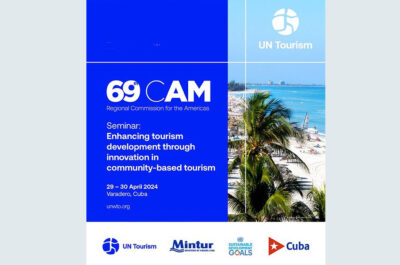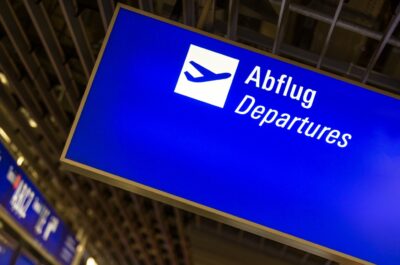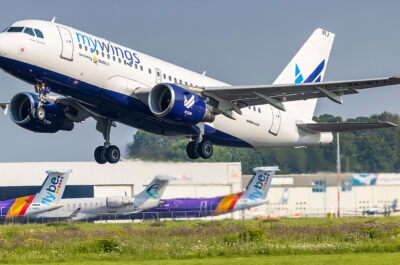The European airport industry gathers in Madrid for the 22nd ACI Europe Annual Assembly, Congress & Exhibition hosted by Aena Aeropuertos. The theme of this year’s event is “Putting the Passenger First – From Infrastructure Managers to Service Providers”. On this occasion, European airport trade body ACI Europe addressed the immediate outlook for airports…

The European airport industry gathers in Madrid for the 22nd ACI Europe Annual Assembly, Congress & Exhibition hosted by Aena Aeropuertos. The theme of this year’s event is “Putting the Passenger First – From Infrastructure Managers to Service Providers”. On this occasion, European airport trade body ACI Europe addressed the immediate outlook for airports.
Air traffic outlook
After a dynamic recovery in passenger traffic in 2011, which saw Europe’s airports welcome an additional 100 million passengers and highest ever traffic figure with 1.585 billion passengers, traffic growth has significantly slowed down since the start of 2012.
The slowdown predominantly affects airports in EU countries, where passenger traffic stalled in April at +0.7%, with 11 national markets posting negative figures. Conversely, growth at non-EU airports has remained extremely dynamic with +9.1% in passenger growth in that same month – driven by airports in Russia, Turkey, Iceland and Georgia.
Olivier Jankovec, Director General ACI Europe commented “The Olympics and the European Football Championship are just about the only ray of light for many EU airports at the moment. The Euro zone crisis has brought passenger traffic to a standstill and already sent freight traffic into recession. Airports are faced with a worrying combination of negative determinants affecting air traffic – many of which are specific to the EU. Beyond the debt crisis, volatility in fuel prices, national aviation taxes and the EU Emissions Trading Scheme are all adding to the pain.”
With heightened uncertainty over the Euro zone crisis and the global economy edging towards recession, demand for air transport in Europe is likely to be sluggish, at best. In the coming months, the traffic gap between the EU and the New Europe is likely to narrow, as a result of spillover effects and the significant exposure of non-EU airports to EU markets. As a result, for the full year 2012, ACI Europe forecasts total growth for passenger traffic at +2% and a decrease of -2% for freight traffic. Any worsening of the recession in Europe would require a downward revision.
Airline dominance – The new norm
The structure of the European aviation market continues to evolve, reflecting airlines’ renewed efforts to adapt to equally challenging trading conditions. Market exits have been significant since the beginning of the year, with the demise of several airlines?. For those still in business, market discipline is stronger than ever with a focus on yields and capacity control – including for Low Cost Airlines which have tended to shift aircraft between airports rather than growing capacity.
Jankovec commented “Airports have seen a 46% decrease in the number of new air routes opened in 2011. This is a strong indication that airlines are moving from being supply-driven to being demand-driven. This also means increased network volatility and seasonality for airports, as well as continuous and effective pressure on the level of our charges.”
These developments are all pointing towards an increasing ability of airlines to exercise dominance in their relations with airports. ACI Europe released an authoritative independent study carried out by Copenhagen Economics under the direction of Dr. Harry Bush, former UK aviation regulator. The study documents and analyses the shift that has taken place in the airport-airline relationship as a result of aviation liberalisation, evolving airlines’ business models, digitally empowered passengers and commercially focused airports.
Dr Harry Bush commented “The Copenhagen Economics study brings powerful evidence that old presumptions need to be reversed. In Europe, the airports can and do compete and most of them should not require economic regulation. The creation of the single aviation market has not only created a competitive airline market, it has also fundamentally changed the business environment airports operate in and created a more competitive airport market. It would be fitting if Europe would now contribute positively to both the curbing and refashioning of regulation that this new business reality requires”.
Economic & Financial performance
The changes evidenced by the study are confirmed by the evolution of the level of airport charges. In 2010, despite growing traffic, airport revenues coming from charges levied on airlines decreased by -7%, resulting in airlines saving more than €350 million compared to the preceding year³.
Under these circumstances, it is unsurprising that the improvement in the revenue environment for airports has mainly been driven by commercial revenues. These revenues have shown a remarkable resilience – growing by +14% as a result of collaborative efforts between airports and their business partners. However, ACI Europe once again denounced the abusive ‘one bag rule’ implemented by some airlines. This rule is a major threat to their ability to maintain and grow retail revenues – a key contributor to the development of airport infrastructure.
The cost environment has kept deteriorating, despite a strong focus on internal cost cutting, resulting in a -10% in staff costs. In particular, capital costs have increased by +23%, adding an incredible 1.7 billion euros to the cost base – despite a -17% reduction in investments.
Jankovec said “The traffic recovery has not translated into improved profitability for the airport industry: 48% of Europe’s airports are losing money, up from 41% in 2009. Capital costs have literally spiraled out of control for many airports and regulatory driven costs have shown no sign of receding. The situation remains extremely difficult for regional airports, with many of them suffering losses.”
Theodore is the Co-Founder and Managing Editor of TravelDailyNews Media Network; his responsibilities include business development and planning for TravelDailyNews long-term opportunities.



